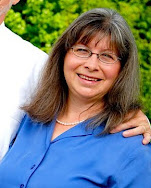Who Was the Greatest American President?
A President’s Day Message from Doug Phillips
Whereupon Congress put at the head of the spirited army, the only man on whom the eyes of all Israel were placed. Posterity, incredulous as they may be, will yet acknowledge that this American Joshua was raised up by God for the great work of leading the armies of this American Joseph — now separated from his brethren — and conducting these people to liberty and independence.
—1783 Sermon from Dr. Ezra Styles, President of Yale.
On this President’s Day I want to remind you that our greatest president was our first. There are no close seconds. As a patriot, a leader, and a president, George Washington still towers over his successors. He was not a perfect man, but he was a man who embodied many of the very best principles of Christian leadership. He was correctly described as “America’s Joshua.”
Here are a few of the reasons why George Washington was our greatest and best president:
- He came to the office with the greatest track record of principled and proven leadership of any president in history:
From his early days serving under General Braddock in the French and Indian Wars; to his life as a citizen planter and as an elected political leader in Virginia; to his role as Commander in Chief during the War for American Independence, and finally as president of the Constitutional Convention, Washington came to office with a widely recognized track record for patriotism, service, self-sacrifice, and principled leadership. - He repeatedly acknowledged and honored the God of Scripture in his public acts, resolutions, speeches and private letters; and he used his office to teach the American people that justice must be built upon true religion:
Washington is responsible for official resolutions that mention the Trinity, the Holy Spirit, and point to Christ; he established the precedent of taking the presidential oath upon the Bible, and he formally told the American people in his Farewell Address that justice required true religion. - He warned against a party system, and urged principled politics: In his Farewell Address he wrote:
“It serves to distract the Public Councils, and enfeeble the Public Administration....agitates the Community with ill-founded jealousies and false alarms; kindles the animosity of one....against another....it opens the door to foreign influence and corruption...thus the policy and the will of one country are subjected to the policy and will of another.” - He opposed foreign entanglements and American interventionism in unjust foreign wars:
Not only did George Washington keep the new nation out of foreign wars, but he exhorted future presidents to do the same, making this a key theme of his Farewell Address. - He demonstrated fiscal self-control and he opposed debt:
Washington wrote:“...cherish public credit. One method of preserving it is to use it as sparingly as possible...avoiding likewise the accumulation of debt....it is essential that you...bear in mind, that towards the payments of debts there must be Revenue, that to have Revenue there must be taxes; that no taxes can be devised, which are not...inconvenient and unpleasant...” - He demonstrated executive restraint and established critical precedents that would model self-control for future presidents of the United States:
Washington had been offered the supreme authority of a king and refused it. At the high point of his military power, he had willingly submitted himself to elected officials. As president he established the principle that presidents should not serve more than two terms, and he made no attempts to unconstitutionally extend the authority of the executive as did many of his successors. - He left office with the most distinguished and unblemished record of principled and visionary leadership in our history:
He was the leader in the fight for independence; the man principally responsible for the ratification of the United States Constitution; the first president of the United States; the only president to be elected unanimously by the Electoral College; responsible for the First Cabinet and the Appointment of the first ten justices of the Supreme Court; and the author of the most recognized and important inaugural speeches and farewell addresses in American history. Of this legacy, Henry Cabot Lodge wrote: “...no man ever left a nobler political testament.”
We have had fair presidents, poor presidents, bad presidents, and a few good presidents, but we have had no president who have modeled any of the above as well as George Washington. After more than two centuries the famous epitaph of “Lighthorse Lee” rings true. George Washington is still “first in war, first in peace, and first in the hearts of his countrymen.”











No comments:
Post a Comment